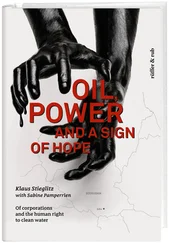It was the day after we had dug up the empty grave. We had gone to sleep exhausted by all the excitement; perhaps that was why we didn’t hear them the next morning when they opened our door. They came very early. We didn’t hear them enter, but the sun on my face woke me up. It was a wafer of a ray, flattened by a narrow crack in the door that directed the sun squarely on my face. I opened my eyes; then, seeing the three men standing solemnly just inside the doorway, I sat up. Zaq, like me, was just waking up, but already his eyes looked alert, and he was getting to his feet.
It was Naman, with two other men I had never seen before, but who, from their clothes, seemed like priests. They stood with their hands clasped behind their backs, the gravitas around them as solid as a rock. Naman, in the middle, was tall and upright; the others were shorter, stooped, and older. One was thin and bald and mustached, and the other was portly, with a fine head of hair.
— These are my fellow priests, and together we represent the entire community.
Zaq stood up and faced them.
— You are welcome, but did you have to wake us up like this?
— You have committed a grave ill. By going to the burial ground and digging up a grave last night, you have desecrated the place, and now—
— Hold on. What are you talking about? Who said we were at the burial ground last night?
Zaq tried to outstare the unblinking priests, but there was neither power nor conviction in his eyes and voice. I said nothing. I sensed a certain change in Naman: this wasn’t the same man I had talked to yesterday. He seemed more distant, sadder, and yet there was a determination, a coldness I had not noticed before in him. He was here to carry out a task, and he was going to do it, though he found the task unpleasant. Now he suddenly stepped forward and before I could draw back he took my right hand and raised it up to Zaq. I was taken by surprise and quickly curled my fingers, trying to hide the telltale red earth that my hasty washing last night hadn’t removed from under the chipped nails. Zaq’s stare wavered. He sighed.
— Well. .
— Our head priest died this morning. And now we cannot bury her because your activity last night has disrupted the balance of things. A purification ceremony has to be carried out. In the meantime, please remain in your hut. The elders will hold a meeting and decide what is to be done.
— We did what we did because you lied to us.
Naman turned to him fiercely. — I didn’t lie to you. I told you all I knew. Please stay here till we send for you.
— No. We’re leaving today.
— You can’t leave till after the burial.
— When is the burial?
— After the purification ritual.
— And when is that?
— We don’t know.
— What do you mean?
— We don’t know how long the ritual will take, we don’t know what the ritual will be, because we have never been faced with such a situation before. No one has ever desecrated a grave before today.
— But it wasn’t even a grave, there was no body in it. .
— But what if there had been a body?
At last the bald-headed elder spoke, his voice as whispery as a ribbon of smoke. His voice was almost pleading, but in his rheumy eyes there was a threat.
— We are having a meeting of all the elders today. Please don’t leave your hut till you have permission.
Naman turned to go, then he stopped and looked at us, and when he spoke his voice was a bit softer.
— In any case, there will be no ferry to take you off the island. There will be no movement or activity till after the burial. The whole community will be in mourning.
— If we attempt to leave, will we be stopped?
— How can you leave? Will you swim, Mr. Zaq? We’d rather you didn’t force our hands. This is a moment of great sorrow for us.
And they left us. Zaq stood at the door, watching the men disappear into the trees.
— Do you think they’re serious?
— They seemed serious about the ferry not coming.
He returned and sat down on his mat. After a while he lay down on his back, facing the roof, his arms folded under his head. I sat down and tried to imitate his calm, but my mind was an ocean, choppy and turbulent and roaring with a million thoughts. My job wasn’t the best in the world — I thought I should receive more recognition and encouragement for the effort and enthusiasm I put into it — but it was the only one I had and I certainly didn’t want to lose it. The only way to keep it was to get to the office as soon as I could. And suddenly I noticed the white robe over Zaq’s mat, hanging from a nail. He still hadn’t returned it. I saw myself in it, disguised as a worshipper, slipping unnoticed into the woods and onto the path between the trees, I saw myself standing at the waterfront, waiting for the next ferry, a fishing boat, anything to take me away to Port Harcourt. Zaq watched curiously as I slipped the robe over my head.
— I’ll be back.
I stepped out, hesitant. But everything was as it used to be, men and women in robes came and went, and there were no sentries lurking behind trees watching our door. Perhaps my disguise was working, or perhaps Naman felt his warning had been stern enough to deter us from attempting to escape. I slipped unnoticed into the woods, taking the path between the tall trees and walking fast toward the waterfront, my head bowed, purposeful. But even from afar I could see the usually busy waterfront was empty today. Where were the fishermen setting out or returning in their long narrow boats with their jute nets at their feet and their sturdy oars in their hands? And where were the women waiting to buy the fish fresh from the water, talking to each other and to the fishermen at the top of their voices, now bantering, now flirting, but always bargaining? There was no ferry waiting to take passengers back to Port Harcourt and to the dozens of tiny islands dotting the endless water that now appeared so daunting and so foe-like. I was a lone figure in a white robe walking on the beach, looking about, and when I finally got tired I headed back to the village center. What I needed, I realized, was an ally in the enemy camp, someone who could tell me how serious the elders were about detaining us here, and how long the detention might last. Gloria.
THE TENEMENT HOUSE was not far from the waterfront. Two women were standing at the front entrance, one with a plastic bucket in her hand, the other holding a baby in her arms. They moved aside as I approached, not pausing in their breathless discussion. My disguise, so far, was holding. But Gloria’s door was locked with a big Yale padlock.
Zaq was still lying on his back, his eyes staring at the roof, when I returned.
— We can’t get away. There are no boats coming or going, and the whole village is staying home. Nothing is happening.
— You should rest. Save your energy.
— But we’re trapped here. We could be here for days, weeks. .
— Nothing we can do about it, so we wait. Conserve our energy.
I sat on my mat and stared at the open door. At midday two women came in and gave us lunch, avoiding our eyes, evading our questions. At sundown they returned with dinner. I had no appetite. I watched Zaq eat the boiled yam and oil with gusto. Then I slipped out again as soon as it was dark. Surely she would have heard about our situation by now? Why hadn’t Gloria tried to communicate, send us a note? Perhaps she had been warned to keep away from us. I entered the woods, walking fast, almost running, and soon I was out of the trees and once more entering the tenement house. I almost expected to find the two gossiping women still standing by the entrance, but the space where they stood was now empty, the front door ajar. I went inside. The wind stopped suddenly, as if cut off by a switch. Gloria’s door was still locked. I decided to wait. For the first time I noticed the rows of doors to my left and right. Some were half open, and sounds from radios drifted out faintly from behind fluttering curtains. A door opened to my right and a woman came out, a bucket in her hand. She glanced at me as she passed, then she went to a corner and I heard the sound of tap water falling into her metal bucket. I turned and left.
Читать дальше












